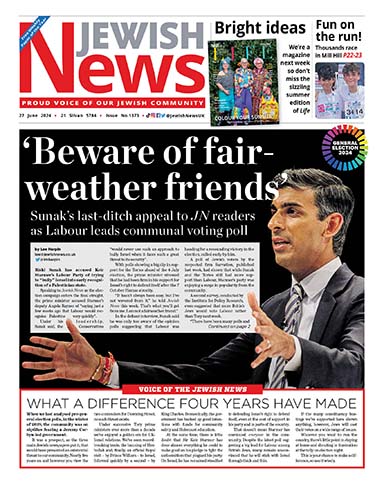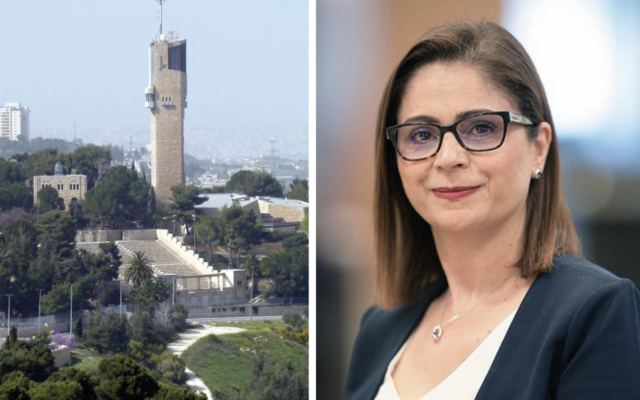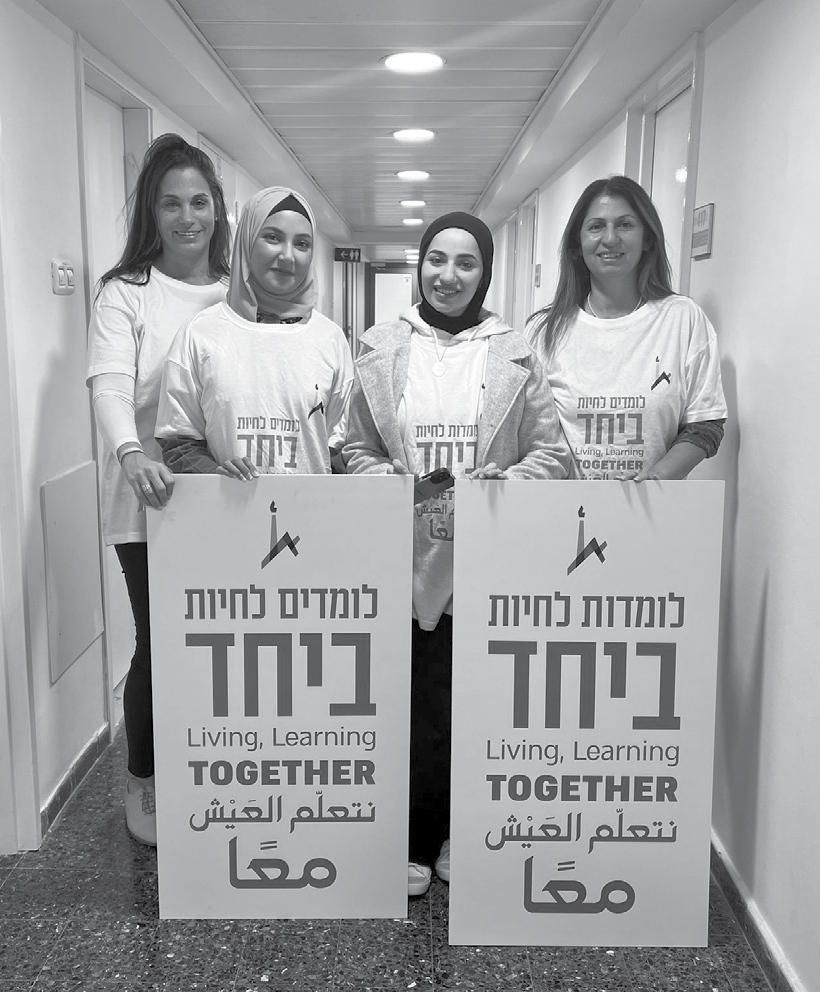Making diversity work: how the Hebrew U is adapting during the Gaza war
The professor of social work tasked with improving inclusion at the Hebrew University of Jerusalem wishes Israel would do as she does, by giving opportunity to everyone
Student protests and encampments over the war in Gaza have challenged universities in the UK, Europe and the US. For the Hebrew University of Jerusalem, however, the difficulties have been of a different magnitude. “It’s more complicated than in the States because we live the complexity, we see what’s going on in some way,” says Prof Mona Khoury, the university’s vice-president for strategy and diversity.
The Hebrew University was uniquely placed, as an academic institution, to respond to the war. It invited its own experts, especially those who work on trauma, on to Zoom after 7 October to talk with students and with faculty and administrative staff about the anxiety of what had happened and what was unfolding. Online contact continued but the start of term, due on 15 October, had to be postponed for most students until 31 December.
Trauma is a word Prof Khoury returns to repeatedly during our interview this week: in the Hamas attacks, sons, daughters and parents of teaching staff and postgraduate students were murdered and taken hostage, and among the enormous numbers of Palestinian people killed in the ongoing war are relatives and friends of students and faculty members. In addition, 5,000 students have been recruited to the IDF, some of whom have been killed in active service.
In the School of Social Work, where Khoury is a professor, several senior faculty members have expertise in teaching about and dealing with trauma, and have become part of a team – put together by the Dean – who are also providing services to affected children affected.
Prof Khoury and her colleagues already had a crisis management plan: a document the president of the university asked her to prepare during the May 2021 Israel–Palestinian crisis and which detailed the steps the institution needed to take during a time of conflict. She was then newly appointed to the diversity role, which she took up that September. Much of the content of that document has been in use since 7 October.
Workshops and arts activities are among the routes tools used to encourage students to talk to each other, as a way of increasing inclusion. A project that has had particularly positive results is one in which students from different backgrounds do assignments with each other, with a view to changing attitudes, ideas and perspectives. Away from their studies, students are offered interfaith groups, music and theatre ensembles.
Some programmes are initiatives of the students themselves, including Mayan Bamidbar (‘Fountain in the Desert’), where Arab students teach Arabic to Jewish students and Jewish students read Arab students’ assignments in Hebrew. In many cases the participating students also receive scholarships, so they are incentivised. Each year about 400 students take part in this kind of project.
Before collaboration can even begin, student diversity has to start with the bringing in of different groups. In recent years the university has succeeded in increasing the number of Palestinian students from Israel as well as Palestinian students from East Jerusalem, from 12 percent a few years ago to 21 percent of current first-year students. Prof Khoury, a former Fulbright postdoctoral fellow at the University of Chicago, has herself contributed to Hebrew U’s diversity: she was the first Arab woman to be appointed dean of faculty at an Israeli university when she took up School of Social Work role in 2018. She is also a recipient of the President of Israel’s Medal of Honour in recognition of her contribution to the country.
The university has not had student encampments or violence on campus, Prof Khoury says. “This doesn’t mean that people don’t feel bad or feel that tension. It’s not a normal situation, so you can’t ignore it. And we have a lot of anger about what’s going on with the hostages.” But there have been protests against the war and for the release of hostages. Three students have been referred to the disciplinary committee, two Arabs and one Jewish; none was suspended and all are back studying. “All of them apologised for what they said,” Prof Khoury adds. One member of staff of the law faculty, Prof Nadera Shalhoub-Kevorkian, who also has a chair in law at Queen Mary University of London, was suspended after police arrested for her online activity but she is now back teaching.
In less than a month this most challenging of academic years will be over. This war has taught everyone a lot. As she looks at how the university has managed, Prof Khoury is optimistic. “I’m not saying we are perfect,” she adds. “But I wish that in some way our country will act as we act, as we try to give opportunity for everyone as we try to be inclusive and be diverse.”
• Prof Mona Khoury will be in discussion with Sarah Sackman, a barrister and Labour’s parliamentary candidate for Finchley and Golders Green, at JW3 on 2 July. Tickets are available from JW3 here.

Thank you for helping to make Jewish News the leading source of news and opinion for the UK Jewish community. Today we're asking for your invaluable help to continue putting our community first in everything we do.
For as little as £5 a month you can help sustain the vital work we do in celebrating and standing up for Jewish life in Britain.
Jewish News holds our community together and keeps us connected. Like a synagogue, it’s where people turn to feel part of something bigger. It also proudly shows the rest of Britain the vibrancy and rich culture of modern Jewish life.
You can make a quick and easy one-off or monthly contribution of £5, £10, £20 or any other sum you’re comfortable with.
100% of your donation will help us continue celebrating our community, in all its dynamic diversity...
Engaging
Being a community platform means so much more than producing a newspaper and website. One of our proudest roles is media partnering with our invaluable charities to amplify the outstanding work they do to help us all.
Celebrating
There’s no shortage of oys in the world but Jewish News takes every opportunity to celebrate the joys too, through projects like Night of Heroes, 40 Under 40 and other compelling countdowns that make the community kvell with pride.
Pioneering
In the first collaboration between media outlets from different faiths, Jewish News worked with British Muslim TV and Church Times to produce a list of young activists leading the way on interfaith understanding.
Campaigning
Royal Mail issued a stamp honouring Holocaust hero Sir Nicholas Winton after a Jewish News campaign attracted more than 100,000 backers. Jewish Newsalso produces special editions of the paper highlighting pressing issues including mental health and Holocaust remembrance.
Easy access
In an age when news is readily accessible, Jewish News provides high-quality content free online and offline, removing any financial barriers to connecting people.
Voice of our community to wider society
The Jewish News team regularly appears on TV, radio and on the pages of the national press to comment on stories about the Jewish community. Easy access to the paper on the streets of London also means Jewish News provides an invaluable window into the community for the country at large.
We hope you agree all this is worth preserving.























